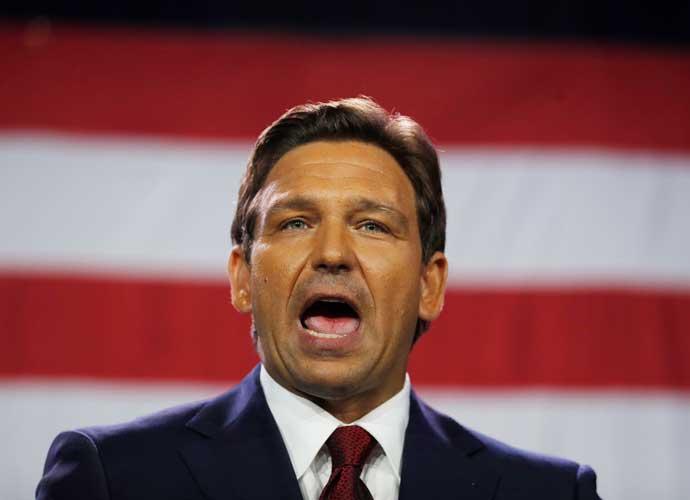After Florida Leads Country In Public School Book Bans, Gov. Ron DeSantis Signs Bill To Limit Them
Florida Gov. Ron DeSantis (R-Florida) signed an education bill restricting objections to public school library books.
This new legislation, which DeSantis signed on April 16, would enforce a limit of one objection to a book every month for people who do not have children in a given school district.
People with children in a district will continue to be granted unlimited challenges to library books.
According to the governor’s office, the bill “protects schools from activists trying to politicize and disrupt a district’s book review process.”
On April 16, PEN America, a free speech organization advocating against book bans, released a report stating that Florida faced the highest number of book ban cases, with 3,135 bans across 11 school districts.
The new law alters the legislation DeSantis signed in 2022, which increased public participation in reviewing school materials and encouraged unlimited challenges to books in school libraries across Florida.
He signed additional legislation in 2023 that expanded restrictions on how information regarding sex and gender is taught in schools, including how parents might be against explicit or inappropriate materials.
“We have curriculum transparency in Florida,” DeSantis said during a news conference in Jacksonville, Florida. “We’ve empowered parents to raise a red flag when you’ve had material that’s not age or developmentally appropriate. And unfortunately, you do have sexually explicit materials that have been injected into schools, school districts throughout the country, including some in the State of Florida.”
“And I think as a parent, you should be able to send your kid to school without having that injected in their curriculum or put in the libraries,” he asserted. “It’s just not appropriate.”
“A lot of the stuff that’s sexually explicit when parents will raise – raise it with a school board in a public meeting, when they will show pictures, when they will quote,” he stated. “The school board members usually will say, ‘Oh no, no, you can’t do that. That’s too graphic for – for a public school board meeting.'”
“Okay, well, it’s too graphic for that, but somehow you’re going to jam it in front of a sixth grader. How does that work?” the governor asked.
“The media will not put some of the stuff on TV because they would run afoul of some of the decency restrictions that you run for being a public broadcaster,” DeSantis said. “So there’s all these things – it’s like okay if it’s – if it’s too explicit sexually explicit for the 6:00 news, you’re going to put it in front of a fifth grader, no you’re not going to do that,” he mentioned.
“So that’s unfortunately necessary to be able to give parents the ability to raise the red flag,” he stated. “I think what’s happened, though, is you have some people taking the curriculum transparency, and they are trying to weaponize that for political purposes.”
“So that involves objecting to normal books – like some of the books that I saw in the teacher’s lounge, these classic books,” he stated.
“There’s people that will try to object to that because they want to create a narrative that’s like ‘oh all these books books, you know, we don’t know what – what’s lawful or – or not to have,” the governor claimed. “That’s nonsense.”
“All those books that have been in schools – none of that has any impact – our Florida law has no impact on any of that,” he argued. “Everybody knows that, but it’s kind of a passive-aggressive posture to try to create conflict, to try to generate narrative and to advance a political agenda.”
The governor mentioned that some “community members who don’t have kids in school” ask why they are “able to get involved in this curriculum” since they “don’t have kids in school.”
“Well, you know, a lot of—some of them pay taxes, some of them help support the schools through that,” DeSantis said. “So I wouldn’t say that someone who doesn’t have kids in school has no interest. I mean, these are important institutions in our community.”
In February, DeSantis’ office released a statement trying to fight the idea that Florida is the country’s book ban capital. He argued that he was giving parents and school systems power to remove obscene material from school libraries and classrooms.
RELATED ARTICLES
Get the most-revealing celebrity conversations with the uInterview podcast!









Leave a comment